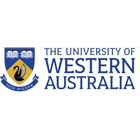Bachelor of Earth Sciences and Master of Geoscience
Bachelor of Earth Sciences and Master of Geoscience
This Combined Bachelor’s and Master’s (CBM) is a four-year accelerated program for those with an ATAR of 90 or above. Over the first three years you’ll complete an extended major in Integrated Earth and Marine Sciences, and some units from the Master of Geoscience. You can then choose to exit…
Categories
COURSE DESCRIPTION
This Combined Bachelor’s and Master’s (CBM) is a four-year accelerated program for those with an ATAR of 90 or above. Over the first three years you’ll complete an extended major in Integrated Earth and Marine Sciences, and some units from the Master of Geoscience. You can then choose to exit after three years with an Advanced Bachelor’s Degree in Earth Sciences, or continue with the Master of Geoscience and be awarded a Bachelor of Earth Sciences and a Master of Geoscience at the end of the four years.
Knowledge of past and present earth processes is fundamental for predicting future changes in environments and climate as well as contributing to the management of vital resources.
Why study this course?
Within Australia, this is the only major that integrates Earth and Marine Sciences, providing a unique set of skills nationally
UWA is ranked in the top 30 of global universities (QS 2023) in this discipline, and connects students with world-class research teams
This major provides a high-level of interdisciplinary skills for the nation’s future leaders in research and sustainable industry
Course structure
In your first three years, you will complete the Integrated Earth and Marine Sciences (extended major) and a semester of postgraduate study. You will then complete your selected specialisation in the Master of Geoscience.
You’ll learn to
Collect geoscientific data, on land, at sea, and in the laboratory
Analyse and interpret data in spatial and spatial-temporal contexts
Synthesise and integrate data across multiple scales of observation and over discipline boundaries
Understand the past and present processes of Earth and its planetary neighbours, from the deep interior to the atmosphere
Gain technical skills in analysis and interpretation of geoscience data at a range of scales (micro to global) incorporating conceptual knowledge of processes and materials
Use advanced skills in interpretation and integration of geoscience data applied to understanding the location, origin and evolution of important resources and other geoscience problems
Use advanced skills in communication of geoscience data and interpretations via 2D summaries, 3D models, written work and oral presentation
Career Pathways
Graduates have a range of employment opportunities in the following areas:
Minerals exploration and resource management
Petroleum exploration and resource management
Groundwater exploration and resource management
Energy geoscience
Coastal zone and marine consulting and management
Research/Research and Development in industry, universities and government agencies (CSIRO, AIMS and Geoscience Australia)
REQUIREMENTS
Entry requirements may vary from country to country. Students are required to complete an international academic qualification equivalent to Australian High School (or equivalent).
English language requirements:
IELTS (academic): Overall minimum score of 6.5, no band lower than 6.0
TOEFL Internet-based TOEFL (iBT): an overall score of 82 or above with a minimum score of 22 in writing, 18 in reading, 20 in speaking and 20 in listening
Pearsons Test of English (PTE) (academic): An overall score of 64 with a minimum score of 59 in the speaking and writing sections, and no less than 54 in the other sections
EDUCATIONAL INSTITUTION
The University of Western Australia (UWA) is a proud member of the Group of Eight and is the only university in Western Australia to be ranked in the world top 100 universities (QS World University Rankings 2023).UWA’s main campus is located in Perth, Western Australia and is home to more than 23,000 students. Perth is Australia’s fourth-largest city with over two million people from a variety of cultures worldwide, a strong economy and vibrant lifestyle. Perth is one of the country’s most affordable cities, the closest major Australian city to Asia, and in the same time zone as most of Asia.




